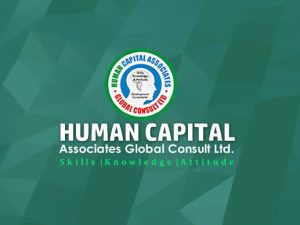Workshop on Maintenance and Reliability Master-class
January 15 – 19, 2024, 1st Run: Lagos & Port Harcourt
July 8 – 12, 2024, 2nd Run: Lagos & Abuja
For Tutor -Led Class: 9am – 4:30pm
Workshop fee: N300, 000 per Participant
For online: Delivery via Zoom
Online course fee: N250, 000 per Participant
Available for In-plant Training
Program Overview:
This guided study course provides Maintenance and Reliability professionals with an in-depth overview of the five pillars of the SMRP Body of Knowledge, along with the award-winning UK Model of Excellence for Maintenance.
Moreover, the course enables participants to develop a strategy for outstanding maintenance and reliability performance, tools to improve reliability at equipment level, and an insight to the latest practices in planning, scheduling and control.
The Certified Maintenance and Reliability Professional standard is the leading accreditation for modern maintenance and reliability professionals. This is a top tier qualification which was established to set a consistent, recognized standard in industry. Furthermore, it is the only certification of its kind accredited by the American National Standards Institute (ANSI) and it follows the global standards of the Organization for Standards (ISO) for its accreditation process. Participants who succeed on the exam will be able to use and promote their awarded designation as “CMRP”.
For Whom:
This course is ideal for maintenance managers and reliability professionals. Experienced supervisors, planners, project engineers, operations managers, functional specialists, and those seeking to achieve the CMRP designation will also benefit from this course.
Learning Objectives:
At the end of the program, participants will be able to:
• explain the structure, content and underlying principles of the SMRP Body of Knowledge;
• explain the Model of Excellence for Maintenance and how to use this to improve company profitability;
• develop effective methodologies to improve Manufacturing Process Reliability;
• describe the key aspects of improving reliability at equipment level;
• utilize leadership skills to achieve maintenance and reliability excellence; and
• demonstrate best practice in Work Management, including the principles of managing work flow, planning and scheduling, and shutdown management.
Course Outline.
Day 1: An introduction to the Model of Excellence
• How maintenance has evolved
• Sources of best practice and benchmarking options
• The pitfalls of traditional maintenance practices
• Understanding where money should be invested and where money tends to be wasted
• The importance of planning
• The relationship between fixed costs and maintenance performance
• A change in thinking
• Away from cost reduction or reliability or safety
• Towards cost reduction and reliability and safety
• The modern maintenance strategy and asset management
• How pace setters add value through maintenance innovation and integration with operating teams
Day 2: SMRP Body of Knowledge Pillar 1 – Business and Management
• How to align maintenance with the unique requirements of any business
• Developing a maintenance vision and a credible plan for delivering this
• Launching and managing the Maintenance Improvement plan
• Selecting and tracking Key Performance Indicators to track progress towards the vision
• An overview of change management
• Overcoming resistance
• Processes and tools for managing change
• Effective management of Human Factors
• Identifying and satisfying stakeholders
• Communication
• Health, safety and environmental considerations
Day 3: SMRP Body of Knowledge Pillar 2 – Manufacturing Process Reliability
• Understanding the relevant management processes for any asset and operation
• Reliability Centered Maintenance
• Lean and six-sigma
• Total Productive Maintenance
• The ideal reliability road map
• Improving process performance
• Cost, risk and value engineering
• The principles of cost-effective maintenance investment
• Management processes
• Reliability improvement methodologies
• Change Management for key processes
• Auditing and assurance processes for compliance with reliability processes
• Conforming with local legislation and relevant standards
Day 4: SMRP Body of Knowledge Pillar 3 – Equipment Reliability
• Setting reliability targets at equipment level
• Assessing and base lining present equipment performance
• Analysis options to understand the underlying causes of inadequate equipment performance
• Root Cause Failure Analysis
• Weibull analysis
• Criticality analysis
• Failure Mode Effects and Criticality Analysis
• Development of effective maintenance plans
• Reactive
• Preventive
• Predictive
• Proactive
• Condition monitoring options for different equipment and failure modes
• A process to ensure new equipment reliability is at the required level
• Implementation of reliability plans for all equipment
Day 5: SMRP Body of Knowledge Pillar 4 – Organization and Leadership
• Developing an organization that will support the reliability and maintenance strategies
• Setting a reliability focused culture
• The roles of personnel outside maintenance in reliability improvement and how to engage the right people in the right way
• Assessing gaps in the organization skills and the current capability vs that required
• Competency management (training and developing personnel).
• Leadership skills required to deliver full organizational performance
• Setting a reliability focused culture
• The roles of personnel outside maintenance in reliability improvement and how to engage the right people in the right way
Day 5: SMRP Body of Knowledge Pillar 5 – Work Management (The Maintenance Process)
• Optimizing the workflow process and CMMS
system performance
• Modern workflow management processes
• Adjusting efforts to drive performance and
Continuous Improvement
• Identifying the correct scope of work
• The work that is critical
• Eliminating waste
• Approval and prioritization of work
• Planning and work pack development for maximum efficiency
• Scheduling work to meet targets and match resource plans
• On Time in Full work execution
• Tool time improvements
• Controlling HSE
• Recording work done, learning and improving future work
• Work Management (Major Activities and Supporting Services)
• Planning and executing projects
• Managing maintenance materials and stores
• Use of computer-based technology
• An introduction to major maintenance tasks,
shutdowns and turnarounds
Training Methodology
Lectures, discussions, exercises, and case studies will be used to reinforce these teaching/learning methods.
Related Courses






